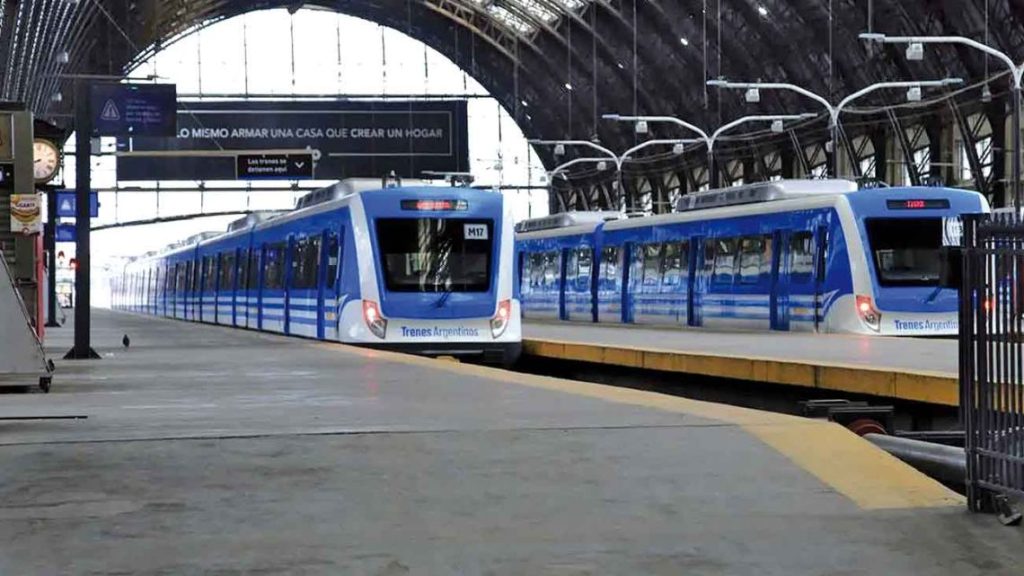Social unrest is growing, labour groups protest in response to President Milei’s belt-tightening measures; Railway staff, health workers, teachers and even scientists take to streets in protest.

Trains ground to a halt and hospitals were left running on fumes this week as demonstrators across the country protested President Javier Milei’s austerity measures.
Education professionals across the country also announced that they would stage a massive walkout on Monday, coinciding with the beginning of the school year in several provinces.
More than two months after Milei took office vowing to slash spending, his massive cuts are taking a toll and hitting Argentines in the pocket.
Annual inflation has hit 254 percent and since Milei ripped away hefty transport, energy and fuel subsidies, public transport fares and consumer bills are soaring. And that’s before Argentines even make it to food shops.
While the government decreed a 30 percent increase in the minimum wage by March, this is far less than the 85 percent demanded by labour unions – and the walk-outs are mounting.
On Wednesday, train drivers and workers downed tools in protest at the paltry 16 percent wage hike they have received. The La Fraternidad union, which was behind the strike, slammed the government for not resorting to compulsory conciliation.
On Thursday, healthcare workers across the public and private sector followed suit and went on strike, with only hospital emergency rooms functioning as normal.
Teachers have called a strike for the start of school next week, and the country’s main labour confederation, the powerful CGT umbrella union group, is debating another general nationwide walkout.
A number of social organisations and picket groups took to the streets yesterday as part of a push for increased food aid for soup kitchens.
Unrest in the education sector is one of the key concerns for the government, which wants to ensure that state schools begin the school year on time.
However, with pay talks deadlocked in many provinces, the Milei administration is now considering declaring education an essential service – a step that would make strike action illegal.
CTERA, the largest national teachers’ union, said its members would not report for work on Monday in protest at the elimination of the National Teachers’ Incentive Fund (FONID) and the Salary Compensation Fund.
The strike was called despite the fact that the Government summoned the unions of the sector to a meeting to discuss the minimum income next Tuesday at the Labor Secretariat, which caused the other four national unions of the activity, which unlike CTERA are part of the CGT, to lift the strike they had announced.
Wage renegotiation talks between teachers’ unions and the government are due to restart as from next Tuesday – a fact that had led four labour groups associated with the CGT to lift a strike previously announced.
However, CTERA – which is not aligned with the CGT – have vowed to press on.
„The call for the meeting has been intentionally delayed. Everyone knew when the school year was starting,“ said CTERA General Secretary Sonia Alesso at a press conference on Thursday.
Scientists have also joined the numerous collectives staging protests against the government’s policies.
Last week saw a protest by more than 500 scholars, teachers and researchers in Buenos Aires City, as demonstrators gathered outside the former headquarters of the Science & Technology Ministry (now downgraded to a Secretariat by the Milei administration).
Rallies also took place at the administrative offices of the CONICET National Scientific and Technical Research Council in Rosario, La Plata and Córdoba. The protesters gathered under the slogan: “No scholarships, no science.”
The focus of the dispute lies in the Milei administration’s financial cutbacks to the sector. Campaigners have multiple complaints but the most critical, at this time, has to do with the slashing of funding for doctorate scholarships.
Dr Valeria Levi, deputy dean of the School of Exact and Natural Sciences of the University of Buenos Aires (UBA), described the cutbacks as “unprecedented.”
“No government ever suspended the scholarship system. And it’s not a significant figure from the [government’s] budget,” she added.
Protesters at last week’s demonstration in the capital said that the government’s decisions are more political than economic, given that CONICET scholarships account for 0.008 percent of the Gross Domestic Product (GDP).
The state budget invested in science in Argentina is around 0.5 percent of the GDP. In developed countries – such as Israel, the nation recently visited by President Milei on his foreign tour – that figure is around three percent of the GDP.
– TIMES/AFP/NA/PERFIL
 Макроекономија Економске анализе, Србија, окружење, и међународна економија
Макроекономија Економске анализе, Србија, окружење, и међународна економија